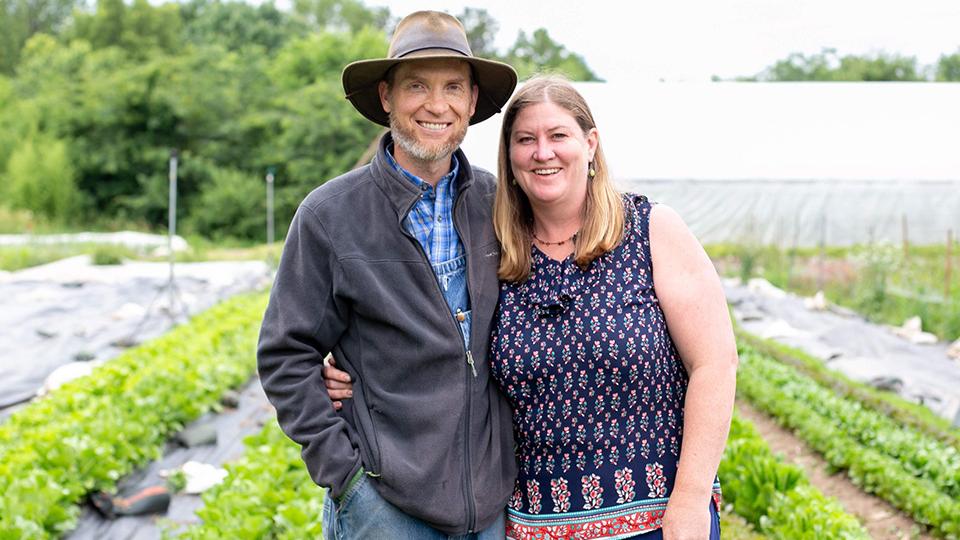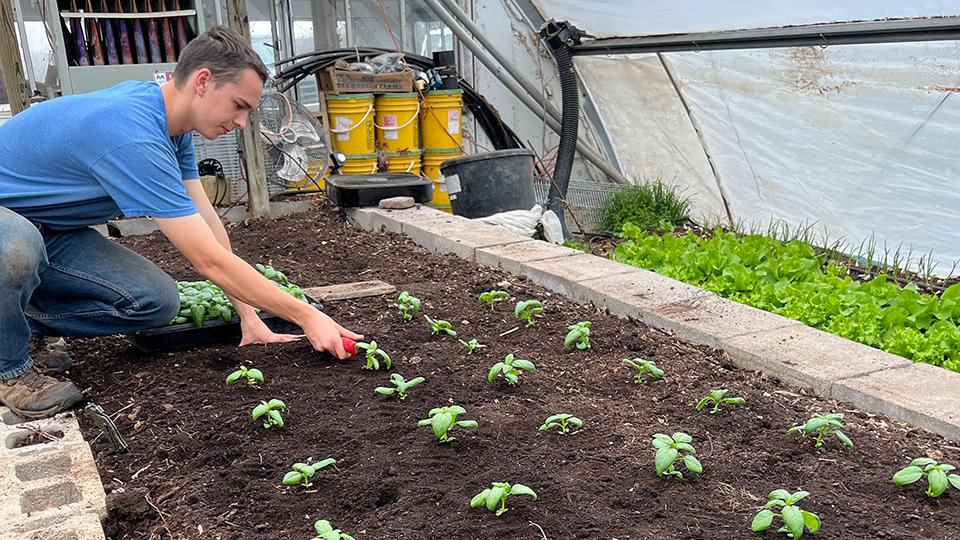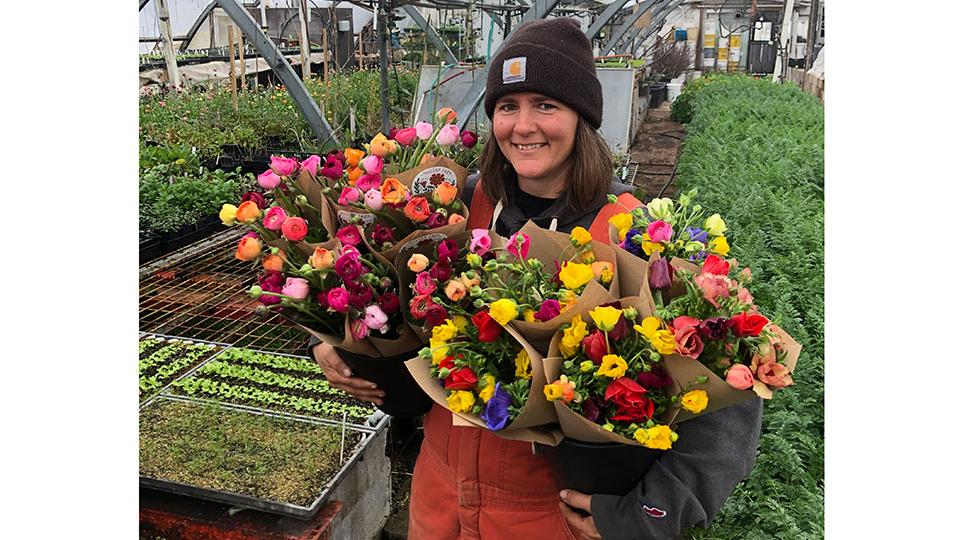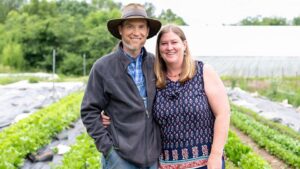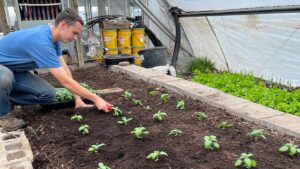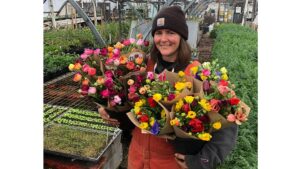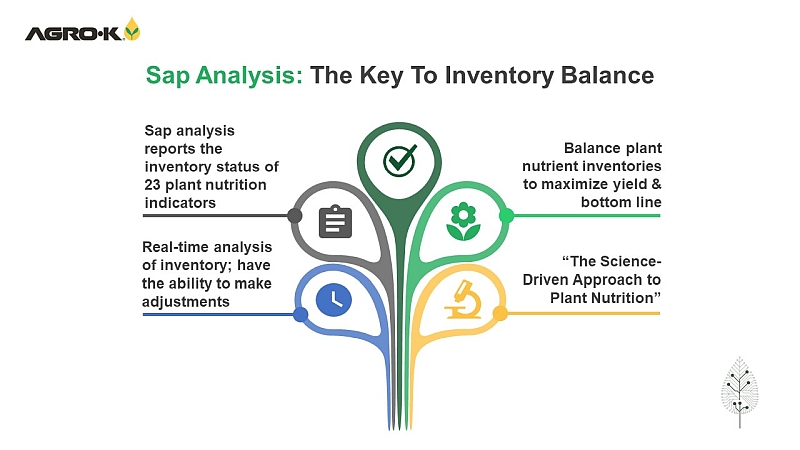Welcome to Millsap Farm: A Classroom With Roots
While many worry about where we’ll find future growers, one Missouri farm is actively recruiting and training them. Springfield-based Millsap Farm’s Curtis and Sarah Millsap go beyond the usual school tours and invite or hire volunteers, apprentices, and interns to work and learn with them.
Curtis also visits local schools, including Missouri State University (MSU).
“He takes a lot of time out of his busy schedule to talk to students about his operation, both the good and the bad,” says Clydette Alsup-Egbers, Associate Professor at MSU.
Although Millsap Farm is on 20 acres, it produces on only 2.5 acres in a blend of open field and cover growing. It’s a year-round operation.
This small farm has transformed many former interns into growers and other industry professionals. Here are some of the lessons the Millsaps have learned over the past 15 years.
A Good Education Is Part of an Intern’s Pay
You can’t treat interns and apprentices as cheap labor. Curtis confesses he screwed up the first year he had interns.
“It was a pretty unmitigated failure, and those poor interns quit in July. One said, ‘I know everything I need to be a farmer.’ And the other one said, ‘I think I’m going to work at Burger King,’” he says.
But the Millsaps learned from that painful lesson. In the second year, Curtis realized if the pay was poor (as internships tend to be), then he needed to be sure to reimburse them with knowledge.
“I was really specific about this being a learning opportunity. It’s really about getting educated,” Curtis says.
That round of interns worked out much better, with one of them still farming his own land 14 years later.
“Curtis is a natural educator who has found ways to continue teaching as he helps people learn to farm,” Sarah says.
Curtis estimates that he spends at least an hour per day slowing down enough to explain the “why” of how he farms. He also takes interns and apprentices on trips to local farms, spending at least two to three days each season on these educational field trips.
Time Well Spent
Training interns is an investment. It requires patience, time, and teaching skills. While it pays dividends in the long run, it isn’t for everyone. A friend of the Millsaps gave up on her farm interns.
“She had interns for years, but she will have six H-2A workers this year because she wants to get the farm work done in a timely and effective manner,” Curtis says.
Hardcore farmers can get it done in about a third of the time it takes somebody learning how to do it, Curtis says.
If interns are inefficient, why bother with them?
“Our hope is that the work we’re doing is creating future farmers,” he says.
For the farm to be profitable, Curtis also relies on skilled, hourly employees. Millsap Farm maintains four to 11 full-time equivalent positions throughout the year, including their farm manager.
The skilled farm workers earn a much higher wage than interns and apprentices, naturally. Doing so helps balance the workload to allow Curtis time to teach and the apprentices and interns time to learn.
Vetting Potential Apprentices Is Essential
Curtis explains how he evaluates a potential apprentice or intern. First step is to check references.
“Not because we want to exclude people,” he says, “but just recognizing that this is hard work. If somebody has difficulties with that, or with being in a community, they’re probably not going to succeed here.”
The next questions are if they like plants and if they’ve worked outdoors for a length of time before.
“If somebody says ‘I’ve weed whacked a lawn one time,’ that’s not a level of intensity that gives you any indication of what this is actually like,” he says.
Raise Up a Good Farm Manager
The Millsaps think highly of their farm manager, Kimby Decker.
“She is very capable of running everything,” he says.
Decker was once one of the Millsap Farm learners. She began by volunteering at the farm one day a week. With a master’s degree in entomology, she planned to become an Extension professional. But when she had her first child, she approached the Millsaps about continuing to work at the farm while bringing her child along.
“Because we were willing to have that flexibility, and because we work in an environment where that’s reasonable, she was able to make that transition from a one-day-a-week volunteer to being the full-time farm manager living on the farm,” Curtis says.
Decker recently bought property close to the farm and continues to manage Millsap Farm while she develops her own farm.
The Farmer Still Has to Farm
Curtis has learned to balance his time spent teaching interns and apprentices, Sarah says.
One day a week (Thursdays), the Millsaps have no interns or apprentices on the farm, she says. It lets Curtis and the experienced farm workers concentrate on getting done what needs to be done.
Saturday is another scheduled break.
“On Saturdays, I don’t supervise anybody, and that makes it feel much more sane,” Curtis says.
Encourage Workers to Appreciate the Perks of Working on a Farm
Part of the Millsap Farm training includes building the right mindset.
“I try to share the excitement daily with my workers,” Curtis says. “I tell them, ‘Wow, what a glorious day, and all those people working in warehouses right now are missing what is going on out here in the world while we get to interact with the magic of seeds and plants and feeding people.’”
They also model for their workers the less tangible benefits of farming in a community.
“It’s a great community,” Curtis explains, “and part of how we can have a balanced life is because we have so many strengths on our staff.”
An Investment in Ag
Both Curtis and Sarah agree pouring their time and energy into apprentices, interns, and volunteers pays off. Though not necessarily for Millsap Farm.
“All the hours that Curtis puts into sharing his knowledge and bringing people along doesn’t necessarily come back to this plot of earth right here,” Sarah says.
Instead, their former interns go out and start new farms and new programs.
“We are investing in the future of agriculture and the mindset of people,” Sarah says.
At a Glance: Millsap Farm
Owners: Curtis and Sarah Millsap
Founded: 2007
Location: Springfield, MO
Acres in production: 2.5 acres
Vegetable crops: Everything except watermelon and winter squash
Customers: Community-supported agriculture, farmers market, self-serve farm stand, restaurants, Thursday Night Pizza Club, education tours





